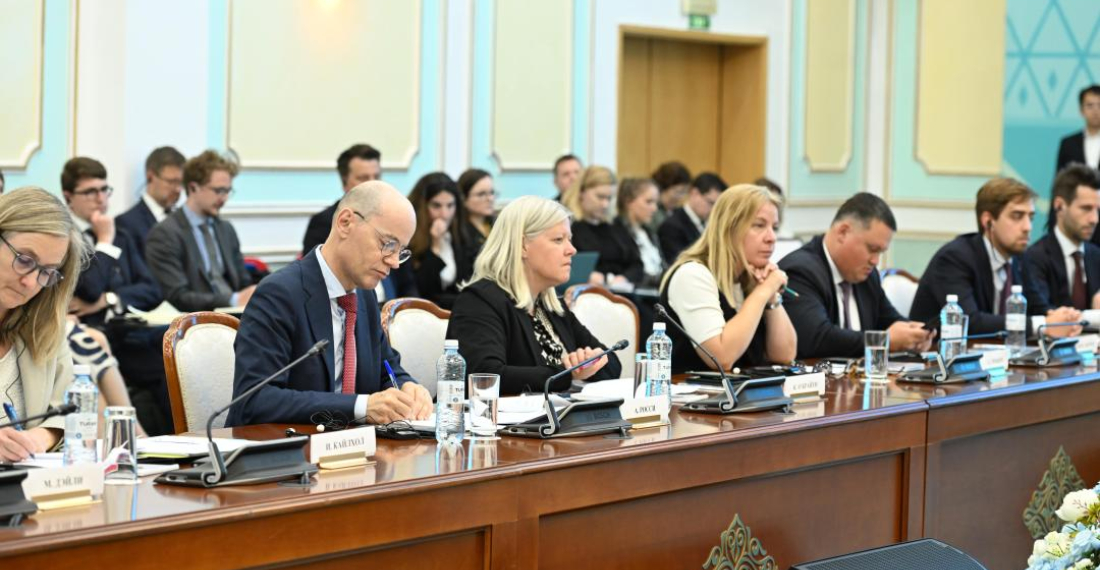A delegation from the Council of the European Union’s Working Party on Eastern Europe and Central Asia (COEST) visited Kazakhstan on June 8-10 to hold talks with government officials in Kazakhstan. The visit, which included the cities of Aktau and Astana, was part of the practical implementation of the Enhanced Partnership and Cooperation Agreement (EPCA) between Kazakhstan and the European Union and its member states. According to the Astana Times quoting the Kazakh Foreign Ministry, the discussions demonstrated a high level of dialogue and mutual commitment aiming to strengthen the Kazakhstan-EU partnership.
In Astana, the COEST delegation met with Deputy Minister of Foreign Affairs Roman Vassilenko and representatives of various government agencies directly involved in bilateral and regional projects with the EU in all areas of Kazakhstan – EU and Central Asia – EU cooperation.
The discussions, according to the Kazakh Foreign Ministry focused on priority areas of cooperation, including trade and investment, sustainable development initiatives, the promotion of the rule of law and human rights, water and climate diplomacy, and the development of the Trans-Caspian International Transport Route.
“The European Union is not only Kazakhstan’s largest trading and investment partner. We also work closely together in achieving common goals in sustainable development, green transformation, and the rule of law,” said Vassilenko.
The Deputy Minister also highlighted the role of COEST as a coordinating body for the EU’s foreign policy approaches towards the region.
“The COEST Working Party plays a key role in shaping the EU’s understanding and approach to Central Asia, and we value its efforts in fostering a constructive and purposeful dialogue with the countries of the region,” he said.
Earlier, in Aktau, members of the delegation met with the akim (mayor) of the Mangystau Region, Nurdaulet Kilybay, and visited leading academic institutions such as the Yessenov Caspian University of Technology and Engineering and the Kazakh-German Institute for Sustainable Engineering. They paid special attention to the region’s logistics potential, particularly the operations of the Aktau International Commercial Sea Port.






